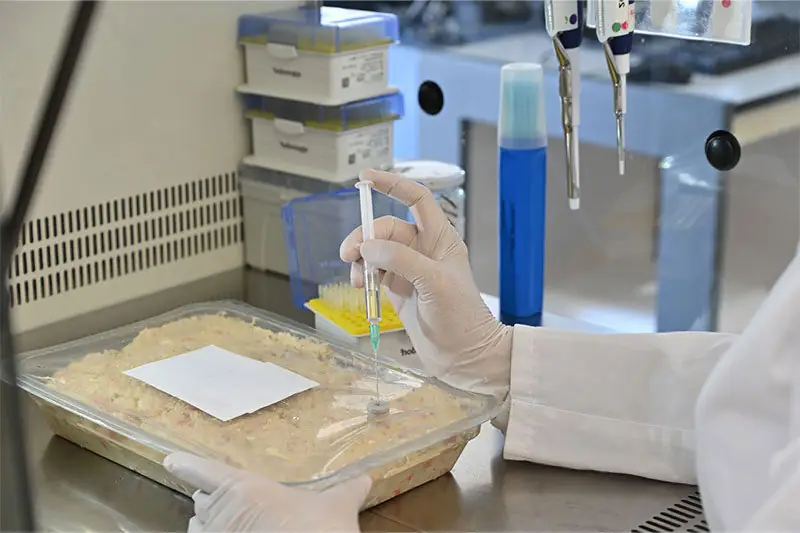ISO 21149 Enumeration of Aerobic Mesophilic Bacteria in Cosmetics Testing
The enumeration and control of aerobic mesophilic bacteria (AMB) is a critical aspect of ensuring the microbiological safety of cosmetics. AMBs are a group of microorganisms that can grow at temperatures ranging from 20°C to 45°C, making them particularly relevant for cosmetic products due to their wide temperature tolerance during storage and use.
The ISO 21149 standard provides a comprehensive framework for the enumeration of AMBs in cosmetics. This service is essential for quality managers, compliance officers, R&D engineers, and procurement teams who aim to ensure product safety and meet regulatory requirements.
The methodology outlined in ISO 21149 focuses on the isolation and counting of colonies from cosmetic samples using agar-based culture techniques. The process involves several key steps: sample dilution, inoculation onto appropriate media, incubation at optimal temperature, and colony count after a set incubation period. This approach ensures accurate enumeration while minimizing contamination risks.
One of the primary goals of this testing procedure is to identify potential sources of contamination early in the production process. By identifying AMBs present in raw materials or during manufacturing processes, cosmetic manufacturers can take corrective actions to prevent microbial growth and maintain product quality.
The use of ISO 21149 not only helps companies comply with international standards but also enhances their reputation among consumers who are increasingly concerned about hygiene and safety. It plays a crucial role in protecting both the brand image and consumer health by ensuring that products meet stringent microbiological criteria.
Additionally, this testing method supports ongoing quality control efforts by providing consistent data that can be used to monitor trends over time. Trends observed through regular testing could indicate any deviations from expected performance or new challenges arising within supply chains.
In summary, adhering to ISO 21149 ensures that cosmetics are produced under hygienic conditions and meet rigorous standards set forth by international organizations. This process contributes significantly towards maintaining consumer trust in the safety and effectiveness of cosmetic products.
Scope and Methodology
| Step | Description |
|---|---|
| Dilution | The sample is diluted using appropriate diluents to obtain a series of serial dilutions. |
| Inoculation | A fixed volume from each dilution is inoculated onto the selected agar media. |
| Incubation | The plates are incubated at 30°C ± 2°C for 48 hours ± 2 hours. |
| Counting | After incubation, the colonies on the agar are counted and expressed as cfu/g or cfu/ml. |
The above steps form a standard protocol that ensures accurate enumeration of AMBs. Proper execution of these procedures is crucial for obtaining reliable results.
Eurolab Advantages
- Comprehensive Expertise: Our laboratory boasts extensive experience in performing microbiological analyses according to ISO 21149, ensuring precise and consistent results.
- State-of-the-Art Equipment: We employ advanced equipment like automated colony counters and incubators capable of maintaining strict environmental controls.
- Certified Personnel: Our staff are trained professionals certified in accordance with ISO 21149, guaranteeing adherence to best practices throughout the testing process.
- Rigorous Quality Control: Strict quality assurance measures ensure that every test result meets our high standards of accuracy and reliability.
These advantages make Eurolab a trusted partner for all your microbiological safety needs in cosmetics.
Quality and Reliability Assurance
- Regular Calibration: All instruments used are regularly calibrated to ensure their accuracy over time.
- Standard Operating Procedures (SOPs): Comprehensive SOPs guide all laboratory personnel through each step of the testing process, reducing variability and enhancing reproducibility.
Our commitment to maintaining high standards extends beyond just technical proficiency; it encompasses every aspect of our operations. This includes rigorous training programs for employees, continuous improvement initiatives, and adherence to stringent quality management systems.





